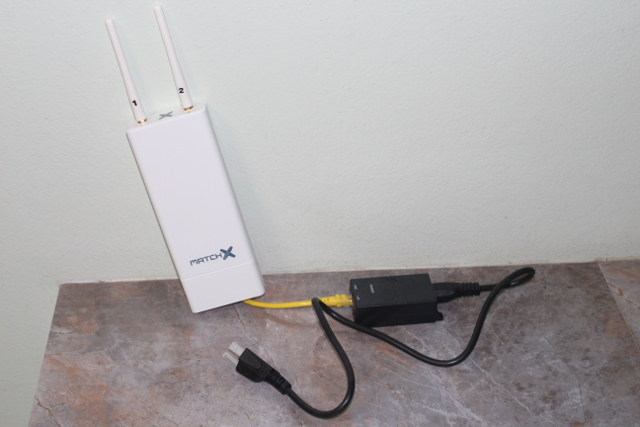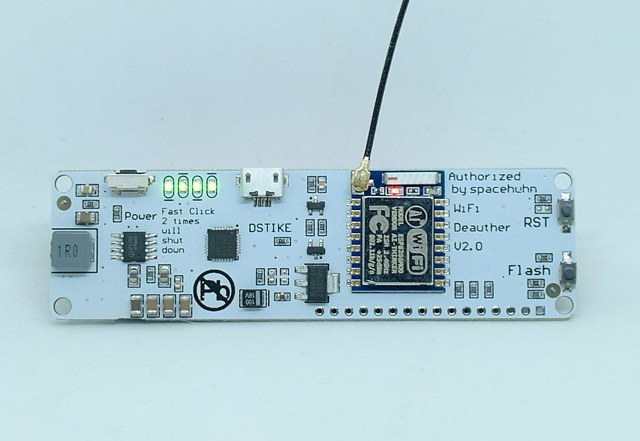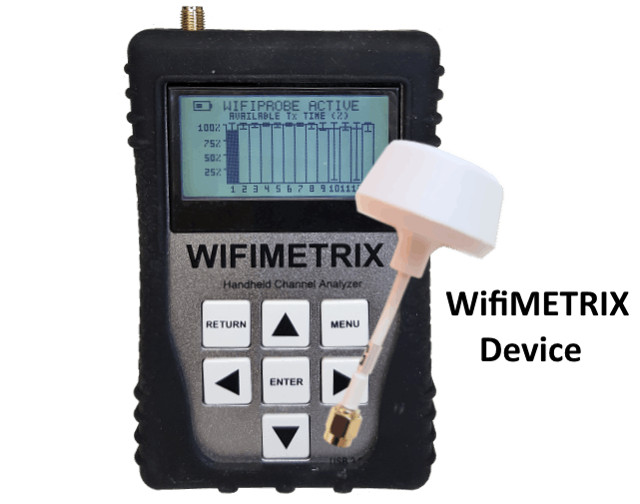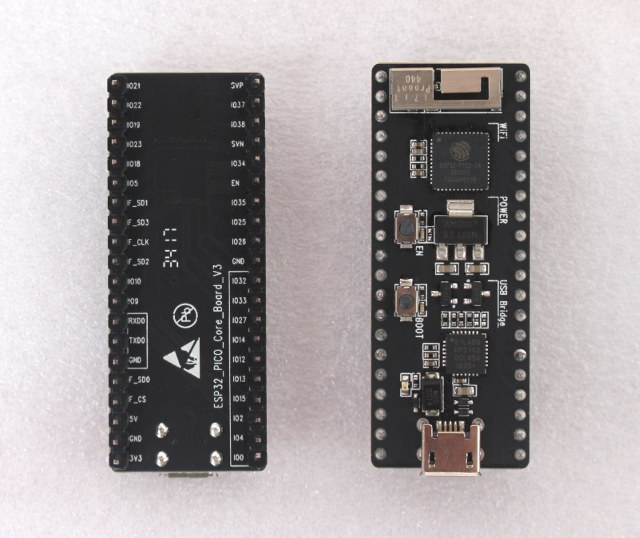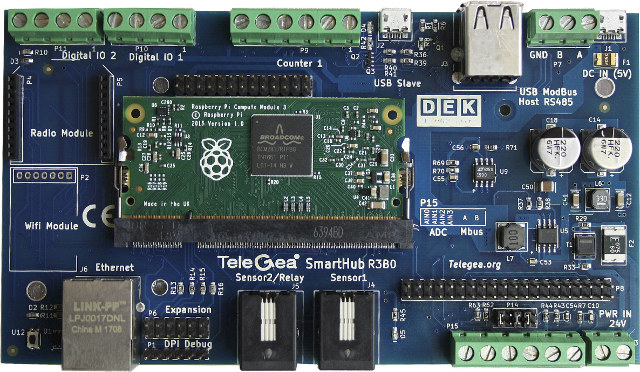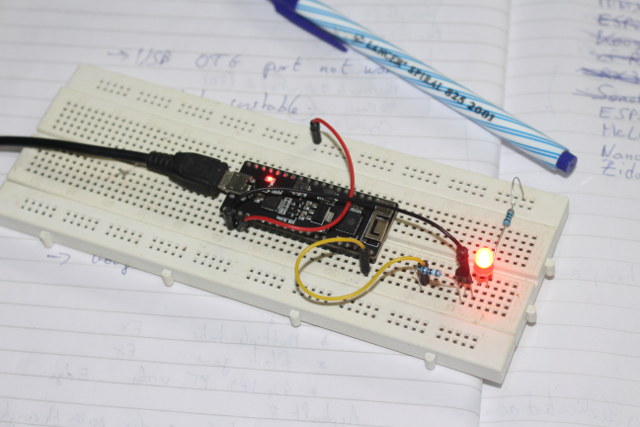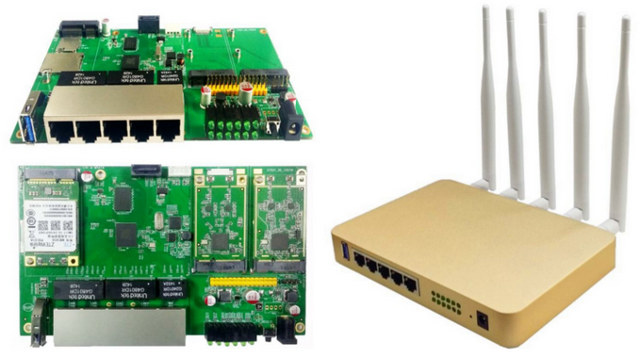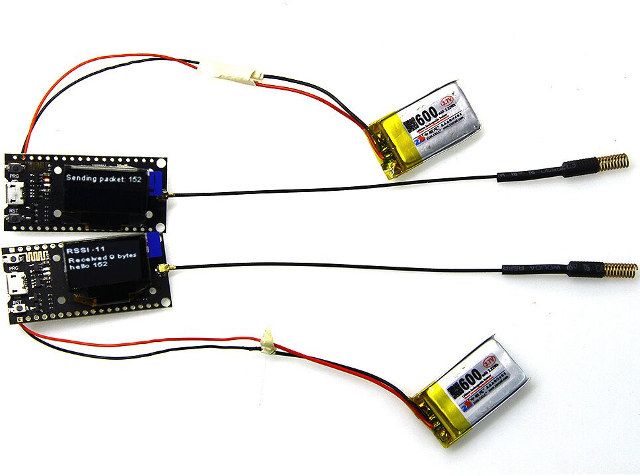Last spring, I wrote about MatchX.io MatchBox LoRaWAN gateway with GPS, WiFi, and Ethernet connectivity. The gateway is equipped based on a Mediatek WiFi module running Linux (OpenWrt/LEDE), Semtech chips for the LoRa part, and support up to 65,535 nodes, such as the as well as MatchStick, MatchModule, and MatchCore sensors provided by the company. I’ve just received MatchBox gateway for review, but I’m still waiting for 920-925MHz LoRa nodes as they are going through the FCC certification process, and I also have to wait for clarifications regarding local regulations. So in the meantime, I’ll check out the gateway hardware. MatchBox LoRaWAN Gateway Unboxing The gateway is shipped with a power supply, power cord, two antennas, an installation guide,… as well as three screws and pegs to wall mount the gateway and power supply, and in case you want to install the gateway on a pole, as shown below, for […]
Cheap Evil Tech – WiFi Deauther V2.0 Board and Autonomous Mini Killer Drones
Most technological advances usually improve life of people, and with the costs coming down dramatically over the years, available to more people. But technology can be used for bad, for example by governments and some hackers. Today, I’ve come across two cheap hardware devices that could be considered evil. The first one is actually pretty harmless and can be use for education, but disconnects you from your WiFi, which may bring severe physiological trauma to some people, but should not be life threatening, while the other is downright scary with cheap targeted killing machines. WiFi Deauther V2.0 board Specifications for this naughty little board: Wireless Module based on ESP8266 WiSoC USB – 1x Micro USB type changed, more stable. Expansion – 17-pin header with 1x ADC, 10x GPIOs, power pins Misc – 1x power switch, battery status LEDs Power Supply 5 to 12V via micro USB port Support for 18650 […]
WifiMETRIX Wi-Fi Networks Analyzer Supports Packet Injection, Throughput Analysis
Nuts about Nets (that’s the company name…) WifiMETRIX is a dual band WiFi diagnostic tool used to analyze, monitor and troubleshoot Wi-Fi networks. The handheld device implements two main features: AirHORN RF signal / channel generator that transmits RF signals for each of the Wi-Fi channels, and aids in testing Wi-Fi antennas, RF shields and wireless networks. WiFiPROBE for per channel’s throughput analysis The device operates in standalone mode and does not need to associate with the access point to perform the functions. WifiMETRIX technical specifications: Dual-band 802.11 Wi-Fi chip Antennas / connectors Dual-band antenna for 2.4 and 5.x GHz ISM bands Standard 50 ohm SMA antenna connector 50 ohm SMA terminator to protect antenna connection SMA terminator (dummy load) also used for calibrating the device Functions AirHORN channel / signal generator functionality (packet injection) WifiPROBE channel analyzer functionality Display – 128×64 built-in LCD screen USB – 1x micro USB […]
Giveaway Week – ESP32 PICO Kit v3 Boards
I don’t have one, but eight boards to give away to four winners (2 each) with Espressif Systems ESP32 PICO Kit v3 board based on ESP32-PICO-D4 SIP, an all-in one package with ESP32, 4MB SPI flash, crystal oscillator, and passive components, which allows for smaller boards. The board is very similar to any other ESP32 boards, and software compatible, but it’s just quite thinner, and easier to work with on breadboards. Since I had already played with Arduino Core and Espruino (JavaScript) on other boards, I used one of the 10 boards provided by Espressif to play with Micropyhon on ESP32. Each winner will get two ESP32 PICO Core board in order to make it worthwhile with regards to shipping costs. To enter the draw simply leave a comment below. Other rules are as follows: Only one entry per contest. I will filter out entries with the same IP and/or […]
Telegea Smart Hub DIN Rail IoT Gateway is Powered by Raspberry Pi CM3 Module
DEK Italia has recently introduced Telegea Smart Hub, an IoT gateway based on Raspberry Pi Computer Module 3 (CM3) with Ethernet, WiFi, RS232/485 ports, and various other I/O ports, that can leverage Raspberry Pi software ecosystem. The company explains the device is mainly targeted at DIY home automation applications as a smart home controller which runs open source smart home software like OpenHAB and Home Assistant, but it can also be used for many other IoT applications. Telegea Smart Hub R3B0 specifications: SoC – Broadcom BCM2837 quad core Cortex A53 processor with VideoCore IV GPU System Memory – 1GB LPDDR2 RAM Storage – 4GB eMMC flash, 256 byte EEPROM Connectivity – 10/100M Ethernet port, optional Wifi 802.11 b/g/n at 2.4 GHz Serial – RS485 serial port, RS232 serial debug port USB – 2x USB 2.0 host ports Expansion 6xdigital inputs via screw terminals (for dry contacts or S0 interface) 4x […]
Getting Started with MicroPython on ESP32 – Hello World, GPIO, and WiFi
I’ve been playing with several ESP32 boards over the months, and tried several firmware images. I started with a tutorial for Arduino Core on ESP32, a few month later I tested ESP32 JavaScript programming with Espruino on ESPino32 board, and recently Espressif Systems sent me ESP32 PICO core development board powered by their ESP32-PICO-D4 SiP, and while I took some pretty photos, I had not used it so far. So I decided to go with yet another firmware, and this time, I played with MicroPython on ESP32, and will report my experience with basic commands, controlling GPIOs, and WiFi in this getting started post. Flashing Micropython Firmware to ESP32 Board Source code is available on Github, as a fork of MicroPython repo as ESP32 support has not been upstreamed yet. We could built the firmware from source, but there’s also a pre-built binary which you can download on MicroPython website. […]
UniElec U7621-06 MediaTek MT7621 Router Supports OpenWrt, Padavan, and PandoraBox Firmware
UniElec U7621-06 is a router / gateway based on Mediatek MT7621 dual core/Quad Thread processor, and offered either as a board only or complete system with optional WiFi and/or LTE PCIe modules. While the board is said to run OpenWrt or firmware based on Mediatek Linux SDK , the company also mentions the board runs Breed bootloader that can be used to upgrade the firmware through a web interface. UniElec claims the router supports alternative firmware such as Padavan or PandoraBox. UniElec U7621-06 specifications: SoC – Mediatek MT7621 dual-core, quad-thread MIPS1004K processor @ up to 880MHz System Memory – 256MB DDR3 (optional 512 MB) Storage – 16MB NOR Flash (optional 8/32/64MB), 1x SATA 3.0 port, 1x micro SD card slot Connectivity – 5x Gigabit Ports (4x LAN, 1x WAN) USB – 1x USB 3.0 port Expansion 2x “normal” mPCIe for 802.11ac or 802.11n WiFi module 1x mPCIe connector for LTE […]
This TTGO Board Combines ESP32, LoRa Radio, and OLED Display for just $10
Just one year ago, it would cost around $15 to $20+ to get an ESP32 board, that is if you were lucky/fast enough to order one one before it went out of stock. Since then, availability is no longer an issue, and you now can get an ESP32 development board for as low as about $7, or even around $4 during promotions. Today, I was made aware of another board sold under the “TTGO” brand, that includes not only ESP32 WiFi and Bluetooth SoC, but also a (433 MHz) LoRa radio, and an OLED display. Price? Just $10 plus shipping ($1.75 here). TTGO ESP32/LoRa board specifications: WiSoC – Espressif ESP32 Storage – 32MB on-board flash (or maybe just 16MB?) LoRa Semtech SX1278 with u.FL connector + 433MHz antenna (N.B.: Antenna must be connected during use or the Semtech chip could be damaged) Sensitivity” ~ -148dBm; output power: +20dBm Display – […]


